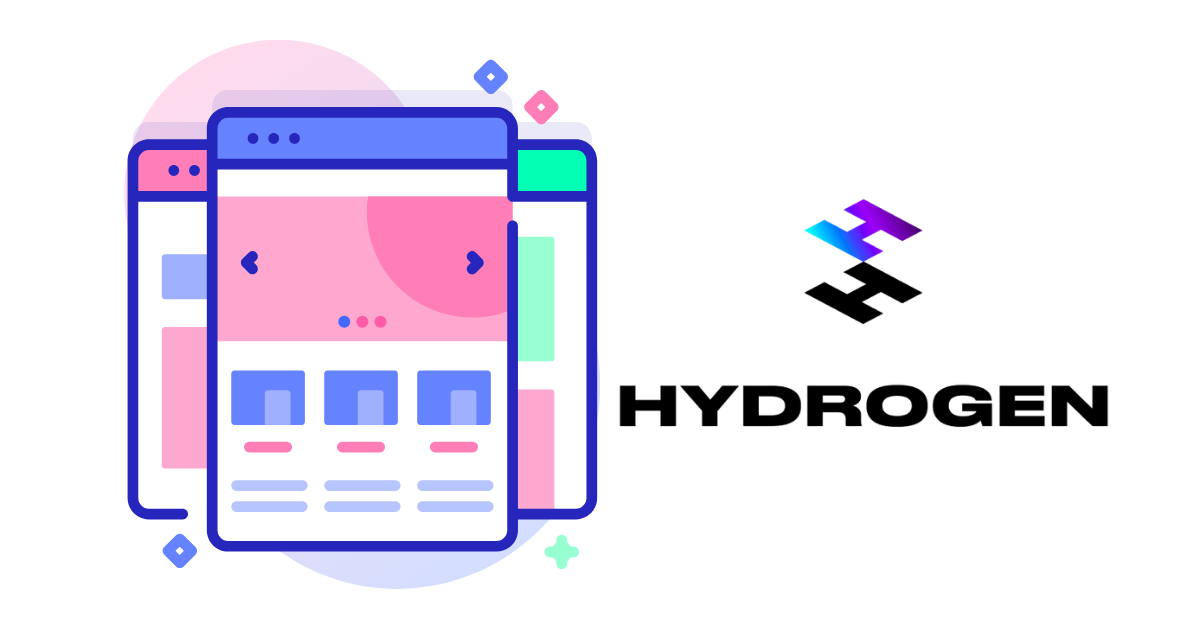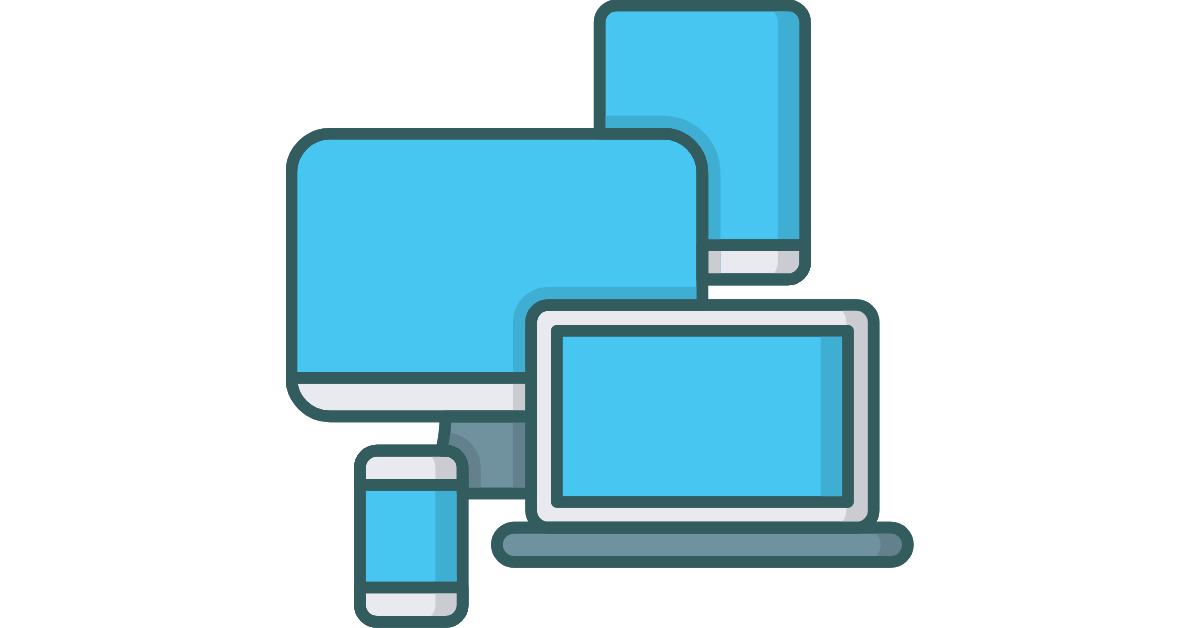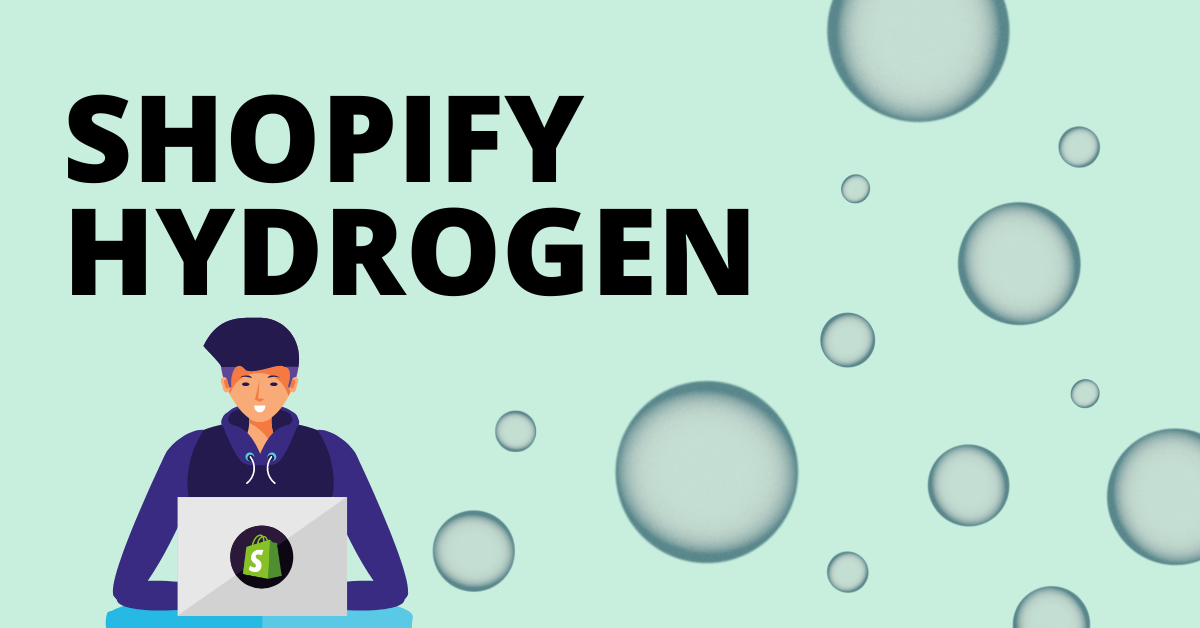What is Shopify Hydrogen and how can it transform your eCommerce strategies? Shopify Hydrogen is a framework specifically designed for developers to create unique, high-performance storefronts on Shopify. It’s engineered for speed, customization, and improved user experience with a headless approach that allows the frontend and backend to operate separately. This article delves into what Shopify Hydrogen is, its benefits, and practical insights for businesses and developers wanting to adopt headless commerce solutions.
Key Takeaways
- Shopify Hydrogen is a React-based framework enabling developers to create headless eCommerce stores with high performance and customizability, representing a considerable stride in the development of unique online shopping experiences.
- The headless architecture of Shopify Hydrogen provides benefits such as improved loading times, greater flexibility in design, and seamless integration with third-party systems. This allows businesses to deliver personalized and engaging customer experiences while ensuring scalability.
- Hydrogen’s open-source nature and developer-centric tools, such as a React framework, components, and Oxygen hosting, streamline the development process for creating custom Shopify storefronts, ultimately enhancing the performance and user experience of eCommerce sites.
Shopify Hydrogen in eCommerce development

Shopify Hydrogen represents a turning point in the evolution of eCommerce development. Setting up a Shopify store in a traditional approach deviates from using Hydrogen. This React-based framework is designed to facilitate the creation of custom storefronts on Shopify, offering an array of components, tools, utilities, and examples to assist in developing high-performing eCommerce websites.
What sets Shopify Hydrogen React-based platform apart is its ability to enable developers to construct ‘headless’ stores, in which the customer-facing frontend operates separately from the data-processing backend. This innovative approach sets new benchmarks in the industry, offering a developer toolkit for launching headless eCommerce stores with client component code transformations.
Shopify Hydrogen stands out in the eCommerce development industry by enabling the creation of distinctive commerce experiences quickly. Offering extensive design options, faster store loading, and the ability to tailor shopping experiences, Hydrogen poses as an attractive solution for online store development.
It elevates the user experience in eCommerce by offering a more flexible, customizable, and faster storefront experience.
Core features of Shopify Hydrogen
Shopify Hydrogen offers a range of built-in Shopify features essential for improving conversion rates, including cart, markets, analytics and Shop Pay.
The developer tools provided by Hydrogen are equally impressive. Along with its React-based framework for creating custom storefronts, Hydrogen offers a wealth of tools, utilities, and best-in-class examples for developing a custom storefront with Remix.
Built-in Oxygen hosting facilitates seamless deployment, making the combination of Hydrogen and Oxygen a powerful solution for eCommerce development.
Aside from its impressive features, Hydrogen also simplifies the integration with Shopify APIs, providing tools, utilities, and examples that enable the creation of a Hydrogen storefront within the Shopify admin. Essentially, Shopify Hydrogen integrates multiple technologies to create engaging shopping experiences while maintaining high performance, striking a balance between interactivity and speed.
Building blocks of a Hydrogen storefront
Building a Hydrogen storefront involves utilizing Hydrogen React, a collection of React components, reusable functions, and utilities designed for interfacing with Shopify’s Storefront API. Developers have the freedom to employ React Server Components to drive their personalized storefronts. The utilization of React components offers numerous design opportunities, quicker loading storefronts, and the adaptability to tailor shopping experiences.
The React-based structure of the Hydrogen storefront facilitates customization by offering a React framework that lets developers construct custom and innovative storefronts. This capability enables developers to craft distinctive shopping experiences, enhancing user satisfaction and driving business success.
The headless commerce with Shopify Hydrogen

Headless commerce within the framework of Shopify Hydrogen involves:
- Separating the user interface of an online store from its backend operations
- Enhancing agility and fostering innovation in the development of online stores
- Establishing a scalable platform by separating the frontend and backend, thereby enabling independent scaling of each component
- Helps businesses to deliver more personalized and engaging customer experiences
- Ultimately leading to higher customer satisfaction.
Headless commerce in Shopify Hydrogen enables smooth integration with third-party systems, ensuring flawless functionality of third-party frontend integration and full integration with any third-party service that exposes an API.
It is a React-based framework that allows developers to create tailored web storefronts for headless commerce, facilitating rapid and innovative online store design while retaining the robust backend capabilities and features offered by Shopify.
Advantages of adopting headless architecture
Choosing headless eCommerce development brings numerous benefits, including:
- Enhanced website load times, resulting in improved user experience and higher customer satisfaction
- Improved flexibility by enabling retailers to choose the most suitable frontend tools for their specific requirements
- Extensive customization and the development of distinctive, personalized shopping experiences.
In addition to improving performance and offering greater flexibility, headless architecture is future-proof. It allows the separation of the frontend presentation layer from the backend, leading to improved performance, scalability, and control over server and development workflows.
Furthermore, it enhances integration capabilities with evolving systems and technologies, making it an ideal choice for eCommerce businesses looking to stay ahead of the curve with headless development. By adopting a headless framework, businesses can further streamline their processes and ensure a seamless user experience.
How Hydrogen enhances Shopify
A key advantage of Shopify Hydrogen lies in its reinforcement of the Shopify platform’s ecosystem. By providing a streamlined, developer-friendly approach to building custom storefronts, Hydrogen helps developers create responsive commerce experiences using streaming server-side rendering, React Server Components, and a modular architecture.
Hydrogen is considered a developer-friendly platform in the Shopify system due to its facilitation of quicker development of unique custom storefronts, support for modern web technologies, and streamlined page-building and management capabilities.
Hydrogen serves a crucial role in the Shopify ecosystem as a React-based framework for creating custom storefronts. It offers:
- Pre-made components
- Expedites the development process
- Strives to construct high-performing and dynamic headless commerce sites with limitless scalability.
Furthermore, Hydrogen’s architecture effectively integrates the benefits of headless and liquid within Shopify. It is completely open-source, enabling developers to collaborate.
Crafting custom Shopify storefronts with Hydrogen

Hydrogen makes the creation of distinctive, customized Shopify storefronts a reality. Hydrogen offers:
- A comprehensive set of tools, utilities, and best-in-class examples for creating a custom storefront with Remix, a React-based framework designed for developing custom storefronts.
- Unparalleled customization capabilities, providing smart defaults and numerous design options for fast and customizable storefronts.
- The ability to create unique UX/UI designs to deliver a personalized and dynamic shopping experience.
A key feature of Hydrogen is its ability to integrate with smart devices and mobile apps. As an open-source software development toolkit, Hydrogen allows app developers to work together, create, and incorporate apps with Shopify. Its headless architecture provides developers the flexibility to transform nearly any screen into a digital storefront, enabling smooth omnichannel experiences.
Flexibility and design freedom
Shopify Hydrogen offers unparalleled design flexibility, enabling brands to:
- Create distinctive and immersive commerce experiences that surpass the standard templates and frameworks of conventional eCommerce platforms
- Have complete design control
- Create truly unique online shopping experiences.
Integration with smart devices and mobile apps
Hydrogen’s headless architecture enables seamless integration with smart devices and hydrogen apps. Hydrogen allows app developers to work together, construct, and integrate apps with Shopify. Furthermore, Hydrogen improves user experience on mobile apps by offering a contemporary mobile user experience that facilitates maintenance activities and prioritizes user onboarding, resulting in a seamless and captivating interaction for mobile users.
By offering comprehensive integration with smart devices and mobile apps, Hydrogen enhances the omnichannel experience offered by eCommerce businesses. Its features include:
- Comprehensive integration with smart devices and mobile apps
- Headless eCommerce framework for distinctive and captivating user experiences
- Unlimited design capabilities
- Quicker loading stores
- Capacity to tailor shopping experiences across multiple channels.
Hydrogen’s developer-centric approach

A fundamental strength of Hydrogen is its focus on developers. By offering a wealth of tools and resources to streamline the development process, Hydrogen helps developers to bring their app concepts to life. Compared to traditional Shopify development, Hydrogen offers a developer-friendly experience by combining React and Vite to create custom storefronts on Shopify, resulting in improved Shopify performance for end-users.
Hydrogen serves as a framework that offers developers a structured approach for creating Shopify custom storefronts, thereby optimizing the app development process.
With Hydrogen, developers can access a comprehensive array of tools, utilities, and exemplary instances for constructing personalized storefronts using Shopify’s React-based framework. This allows developers to craft highly customized storefronts with flexibility.
Developer tools and resources
Hydrogen offers a range of tools and resources for developers, including Hydrogen components and other resources within the hydrogen framework such as:
- A React-based framework for creating custom storefronts
- A range of opinionated components, utilities, and tools
- Integrated Oxygen hosting for seamless deployment
- A dedicated community for Shopify Hydrogen developers to engage in discussions and find support.
The documentation available for Hydrogen app development is extensive, encompassing tutorials, tools, utilities, and examples for constructing dynamic and high-performing commerce applications. Shopify also offers developer support through detailed guides for initiating Hydrogen, crafting custom storefronts, and linking repositories on the Shopify Developer website.
Building your new Hydrogen app
Hydrogen simplifies the development process, facilitating the transformation of your app concept into reality. The procedural steps to develop a Hydrogen app on Shopify include:
- Creating a Hydrogen app
- Selecting a template
- Choosing a language
- Naming the Hydrogen storefront
- Initiating the development process
However, it’s important to note that in order to develop a Shopify app with Hydrogen, it’s necessary to have a Shopify Basic account or higher and a fundamental understanding of Hydrogen.
The recommended guidelines for creating a Shopify app using Hydrogen are to ensure a purpose-built approach, to prioritize server components, and to make effective use of the extensive customization options offered by Hydrogen. By following these guidelines, developers can leverage the power and flexibility of Hydrogen to create unique and dynamic eCommerce applications.
Shopify Oxygen hosting

Shopify Oxygen hosting is a solid solution for businesses aiming to expand their online stores. Oxygen serves as a dedicated platform for hosting Hydrogen storefronts, with a specific focus on accommodating headless react-based Hydrogen stores.
With its integration with Shopify’s global infrastructure, Oxygen enables fast and globally accessible storefronts. Furthermore, Oxygen eliminates the need for additional expenses related to hosting, bandwidth, and storage, making it a cost-effective solution for businesses looking to scale.
Compared to traditional hosting services, Oxygen offers several advantages for Hydrogen storefronts:
- It is a specialized hosting solution tailored for Hydrogen storefronts
- It serves as a comprehensive hosting option provided by Shopify for headless eCommerce configurations
- It incorporates a feature known as ‘Smart Caching’ to enhance page load speed and optimize website performance.
Oxygen’s server components and performance
Oxygen’s server components play a critical role in ensuring that Hydrogen storefronts can handle high-traffic events and scale as needed. The essential elements of the Shopify Oxygen server comprise a collection of opinionated components, utilities, and tools for constructing headless commerce, alongside components, utilities, and design patterns for interfacing with Shopify APIs.
Shopify Oxygen is designed to manage a high volume of concurrent traffic, particularly during peak sales events such as Black Friday, ensuring that your online store remains up and running even during the busiest times.
Shopify Oxygen enhances performance by offering automated code analysis tools, in-browser development tools for performance optimization, and strategies for fetching static and dynamic content efficiently across both client and server sides. In terms of scalability, the Shopify Oxygen server facilitates business scaling by offering automatic scaling and load-balancing features, which are essential for maintaining optimal performance and effectively managing increased traffic.
What to expect when transitioning to Oxygen
Transitioning to Oxygen hosting is a smooth process, with minimal disruption to existing store operations. The process of transitioning to Shopify Oxygen hosting involves creating a Shopify Hydrogen storefront within the Hydrogen sales channels interface and selecting the ‘Create Storefront’ option.
The impact of Oxygen hosting on the performance of a Shopify store is largely positive, with Oxygen offering fast and well-optimized hosting through integration with Cloudflare and Shopify Content Delivery Network (CDN).
However, transitioning to Oxygen hosting is not without its challenges. Some potential challenges that businesses may encounter include technical debt, agency lock-in, and increased development effort in maintenance and common tasks. Moreover, there have been reported issues with Hydrogen stores, which are powered by Oxygen.
Despite these challenges, there are documented case studies showcasing successful transitions to Oxygen hosting, demonstrating that with the right approach, businesses can leverage Oxygen hosting to scale their online stores effectively.
Alternative paths to Hydrogen

While Hydrogen offers a powerful solution for headless commerce, alternative frameworks, and tech stacks may be more suitable for certain businesses and use cases. Several alternative options for eCommerce development instead of Shopify Hydrogen include platforms such as Magento.
There are potential drawbacks to using Magento as an alternative to Shopify Hydrogen, such as a challenging learning curve, a high technical barrier for beginners, and a complex upgrade process. However, Magento provides strong features, flexibility, and the capability to use static blocks, which are its strengths.
In terms of customization and scalability features, BigCommerce provides a broader range of customization capabilities and is particularly suitable for larger enterprises or individuals with coding expertise. It offers extensive flexibility for businesses to personalize features and expand the system in alignment with their specific needs.
WooCommerce is recognized for its user-friendly interface, however, it may have constraints in terms of customization and performance when compared with Shopify Hydrogen.
If you’re interested in more information on the differences between Shopify and other eCommerce platforms, read:
Comparing Hydrogen to other tech stacks
In the comparison of Hydrogen with other tech stacks, the unique advantages and disadvantages of each should be taken into account.
While Hydrogen is designed to exclusively utilize Shopify APIs and is specifically designed for creating custom, headless storefronts, alternative eCommerce platforms may provide distinct advantages such as tailored customizations or cost efficiencies. However, these platforms may not consistently align with Hydrogen’s focus on enhancing page speed and its developer-centric functionalities like streaming server-side rendering.
By comparing Hydrogen to other tech stacks, businesses can better understand the various solutions available and determine the best fit for their specific needs and goals. For example, Magento is recognized for its robustness, user-friendliness, and scalability, offering a versatile eCommerce platform that meets diverse requirements.
When to consider alternatives to Hydrogen
There might be instances where a business could consider the use of different eCommerce platforms over Shopify Hydrogen. For instance, businesses may consider a different platform if:
- They have specific industry requirements
- They consider cost-efficiency
- They require integration with complex systems or technologies that may not be optimally supported by Shopify Hydrogen.
In contrast to Shopify Hydrogen, alternative eCommerce platforms may provide distinct advantages such as tailored customizations or cost efficiency. Nevertheless, they may not consistently align with Hydrogen’s focus on enhancing page speed and its developer-centric functionalities like streaming server-side rendering.
Businesses should carefully evaluate their specific needs and goals when considering whether to adopt Shopify Hydrogen or an alternative platform for their eCommerce development.
Summary
In conclusion, Shopify Hydrogen presents a powerful solution for businesses looking to develop custom, high-performing online stores. With its developer-centric approach, extensive customization options, and seamless integration with smart devices and mobile apps, Hydrogen redefines eCommerce development.
It’s crucial for businesses to carefully evaluate their specific needs and goals to determine whether Hydrogen or an alternative tech stack, is the best fit for their eCommerce development. Businesses that leverage the right tools and technologies will be best equipped to thrive in the competitive eCommerce space.
Frequently Asked Questions
What is Shopify Hydrogen?
Shopify Hydrogen is a React-based framework designed for building custom storefronts, providing the necessary structure, components, and tools for developers to create a personalized user experience.
How much does Shopify Hydrogen cost?
Using Shopify Hydrogen and Oxygen does not incur additional costs, as they are available as part of the Shopify platform.
Can you use Shopify apps with Hydrogen?
Unfortunately, most Shopify apps and plugins are not compatible with Hydrogen, as they are designed to integrate with Liquid templates. However, certain apps allow you to connect a Hydrogen repository on GitHub to Shopify’s Oxygen hosting platform.
What are the core features of Shopify Hydrogen?
The core features of Shopify Hydrogen include built-in Shopify features for conversion, developer tools, and seamless integration with Shopify APIs.
Interested in Shopify Hydrogen? Reach out, and together, let’s craft an exceptional headless commerce website using Shopify!



Share on: